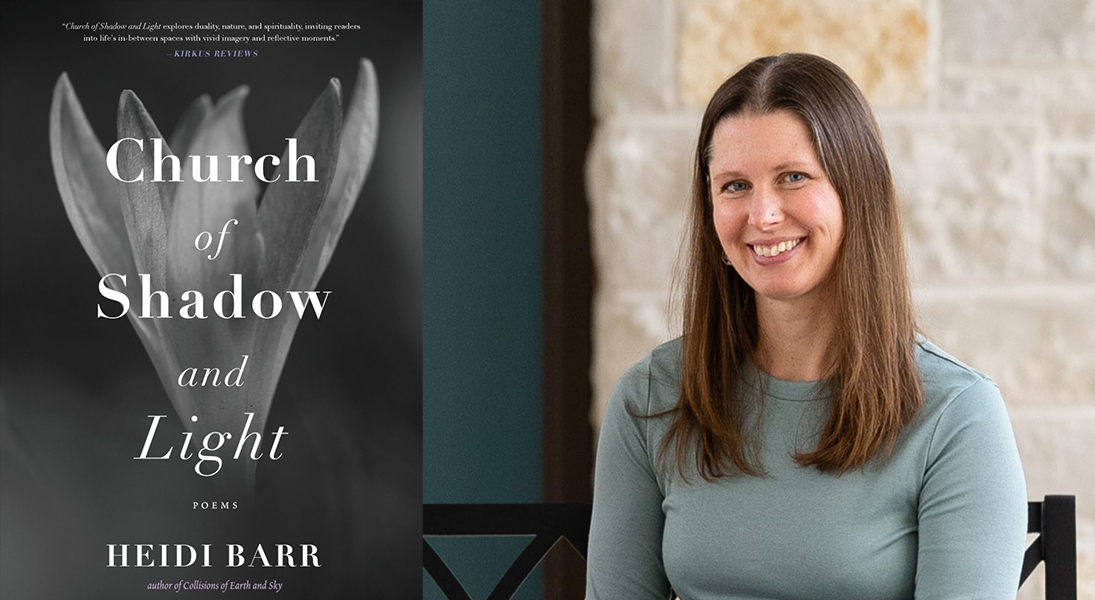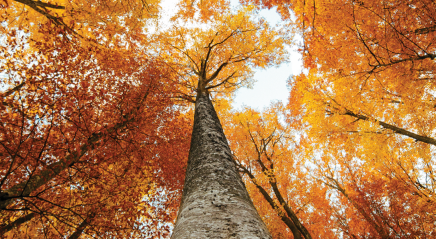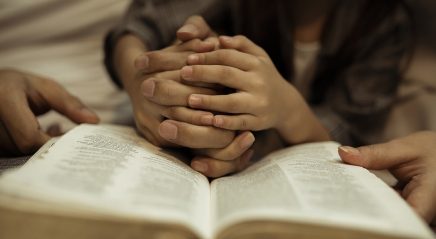Heidi Barr is a writer and wellness coach whose work focuses on cultivating ways of being that are life-giving and sustainable for people, communities and the planet. Her new collection of poems, Church of Shadow and Light (Wayfarer Books, 2025), helps guide readers on a path toward peace and spiritual connection, without shying away from the pain that may come along the way.
Living Lutheran connected with Barr over email about the book—which divides its poems into three themed sections, “Shadow,” “Light” and “Church”—and how it came together.
Living Lutheran: Could you tell readers about your new book?
Barr: Church of Shadow and Light is a call to transform the inner and outer conflicts that shape our world. This collection of plainspoken poetry delves into the interplay between shadow and light, inviting readers to embark on a journey of self-exploration and spiritual awakening. Through a blend of introspective inquiry, heartfelt prayer and a vision for a more harmonious existence, readers are invited to confront and heal the violence within the self and the collective.
At its heart, Church of Shadow and Light is an urgent plea for peace, encouraging us to relinquish the weapons—both tangible and intangible—that perpetuate conflict. One of [its] central questions is: “What’s worth going toward with your whole life?” The reader is invited to sit with the question, and by doing so, discover a path to personal and community healing.
How did you decide on writing this collection of poems—and structuring it in the way you did?
I tend to be a “quilter” when it comes to book assembly—as primarily an essayist and poet, I’m always writing, in little bits and pieces. I keep a running document of poems and other short prose, and when I feel like I have a sizable amount or see a theme developing, I start sifting through it. I take a look at what I’ve got and start to piece it together in a way that makes sense to me—and, hopefully, to the reader.
In regard to this collection, from autumn 2023 to summer 2024, I participated in a yearlong creative writing course, “Writing the Wild,” which included receiving a box of creative materials and writing prompts each month. Many of the poems in Church of Shadow and Light rose from the time I spent engaging with that course and sitting with the prompts offered. The course focused on seasonal themes and on living attuned to the wild. So, since the concepts of shadow and light show up in all seasons, I ended up with many pieces of writing that include some aspect of that interplay. The structure emerged from the writing I was doing, along with what I was going through on a more personal level.
Personal and collective healing are themes in this collection. If you’re comfortable sharing, were there specific areas of shadow and light you were grappling with when you decided to pursue poems on these themes?
The state of the world was definitely part of what shaped the book. But in addition to the (seemingly never-ending) chaos and uncertainty in the larger collective, in early 2024, I was laid off from my day job as a digital health coach. [It was] a job that I really liked, one that felt like a good match for my skill set, and one that was a large portion of my family’s income. I’ve been through a layoff before, but going through something like that once doesn’t make it easier the second time around. The job search that followed was a long road: 10 months of unemployment was not something I anticipated having to navigate after 20 years in my field.
One of [the book’s] central questions is: “What’s worth going toward with your whole life?”
That ongoing financial uncertainty, coupled with multiple extended family members experiencing serious health complications, challenges for my spouse in his field—he works in the downhill ski industry, which had a really tough year in 2024 due to the snowless, warm winter we had—and a string of fairly substantial yet necessary home repairs made for what felt like a consistent onslaught of shadow. Yet alongside the dark, there was beauty and light to be found, and being present for the interplay of those things was a practice in finding the holy in whatever was happening.
In the book you define church as being “wherever you find the version of God that you know.” Could you expand a bit on that idea for those new to it?
The title of Church of Shadow and Light actually comes from a poem that was first published within a chapter of [my book] Collisions of Earth and Sky. In the “Rewilding Spirituality” chapter, I write about what it means to find your version of church in whatever places and people are wholly accepting of who you are. Maybe it’s a place outside, maybe it’s through a more traditional congregational church structure, maybe it’s the energy that greets you when you spend time with a certain group of people or creatures or trees. Wherever it is, “church,” by the definition I offer here, is intimately connected to how you see and feel God in the world. Church is where you experience connection to something greater than yourself.
Here’s the original piece, which also finds a home in this collection:
You know your holy places
by how accepting they are
of your whole personhood
by what you’ll endure
to be there to pray
by the simple knowledge
that something shifts
each time you show up.
How do you hope readers engage with the book?
I hope folks allow the words to meet them where they’re at; we all hold shadow and light and have a unique interpretation of what church means to us. In a world where things often feel out of control, and the state of affairs feels like it’s trending more chaotic with every headline, I hope this book offers space to breathe [and] an invitation to explore what it could mean to walk the road toward peace—and that that road is one that requires allowing both shadow and light to coexist.
This short passage from the collection sums up what I’d hope to offer to others:
I go to the woods or the prairie, no matter how hot or cold the air outside, to remember to be alive with my whole self; to join the seemingly inaccessible wilds that live in each of us with something deeper than what I can access on my own; to claim the pace that serves my life best, one that allows a simple existence, one that is attuned to the joys and sorrows of an earthly life; to ensure my quest for a life worth living is underlaid with enough faith to keep me going for another day.









